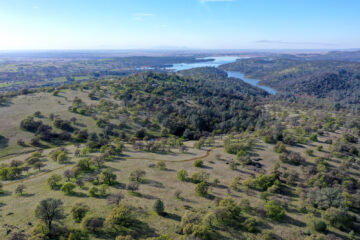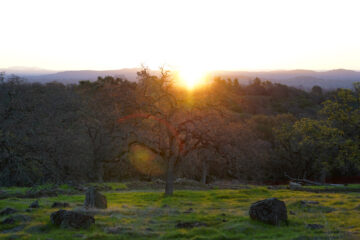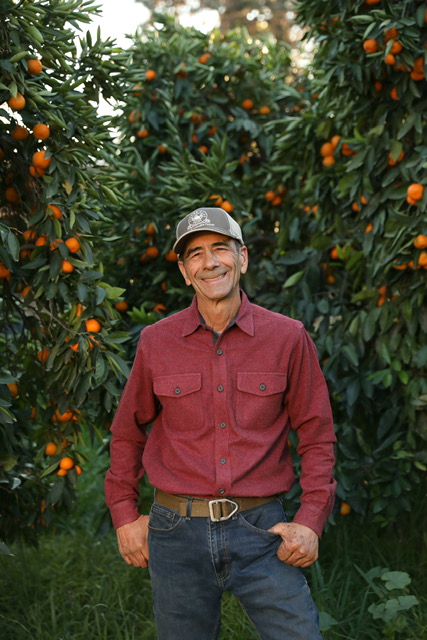
Placer Land Trust Board member Rich Ferreira has been growing and selling Placer County mandarins since 1975 when he bought his 17-acre ranch near Lincoln. He started with 100 Satsuma mandarin orange trees and today, Side Hill Citrus has grown to 48 acres and over 3,000 trees. In 1989 his ranch became certified organic, and in 2014 it became the first mandarin orchard to be permanently preserved, through a collaborative project between Placer Land Trust, the Sierra Nevada Conservancy, and Placer Legacy.
We spoke to Rich about the challenges of farming in a changing climate, and his hopes for how farms can play a role in building climate resilience.
How have you seen climate conditions change over the years you’ve been ranching?
When I bought my ranch, I immediately went into three years of drought, which gave me a bit of a learning curve. But then it’s been really smooth sailing until about five or six years ago. This last drought, coupled with the heat, it’s a whole other ballgame. One of the ways I see the effect on the ground is in the dying oak trees [on my property] — they just can’t survive being this dry.
The main thing that troubles me about the evolution of this — what I perceive as climate change — it’s that there are very few insects left anymore. There’s no spiders in my orchard to speak of. That’s very disturbing to me, because they’re part of a food chain.
Why is farming organically important to you?
For 47 years I’ve not used any herbicides or pesticides. I’ve been certified [organic] for a little over 30 years — that gives me something to put on a box, but I would be doing this, even if I wasn’t certified. I really care about the little animals around. I’ve got a couple dozen bird boxes, and wood duck boxes, owl boxes — I’m trying to do what I can to give them a home when they’re losing so much habitat.
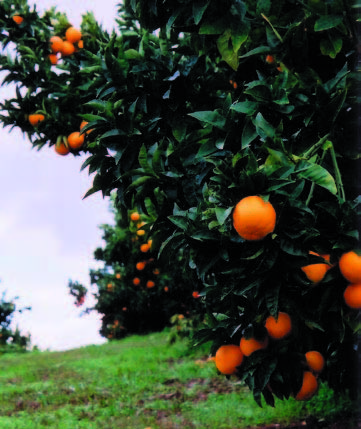
With the heat and drought, what kinds of challenges are you facing?
With this intense heat, you’ve just got to be really on top of the game with irrigation. There’s quite a lot of sunburn [on the mandarins] now — whatever fruit is turned up towards the sun, it’ll pretty much sunburn.
The main thing that I’m worried about is water. I can’t do this without water. For 40 years, I farmed without buying winter water — and you basically can’t get by without it now. Some years through December, or even January, it’s so dry that you have to irrigate.
But I’ve increased the absorption ability of the soil by adding organic matter to it. I put a lot of organic material on my soil — wood chips, high-quality compost — I put out tons and tons and tons of that material. But I’m still on a rock, so I can only go a certain amount of time without irrigating.
I really strive for quality and a good-tasting piece of fruit, and I’m afraid that that is going to be more difficult to do with higher and higher temperatures. Already, I see some difference in the fruit that’s been a little bit too hot in summer. I’m a little worried about that, but more worried about society as a whole.
Once it gets hot enough, it kills off the biology in the soil. When you do that, you’re done — this stuff has a range of temperatures that it likes. There’s just no coming back from that, or at least [it comes back] very slowly.
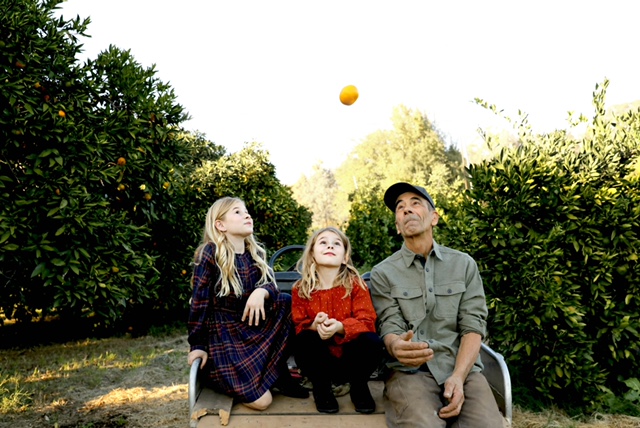
You’ve been partnering on a UC Davis study that looks at how mulch and organic matter can improve mandarin yields and orchard health, and it sounds like that’s a key part of your strategy for adapting to drought and changing climate. What other methods are you using to make your farm more resilient?
I’m trying to capture carbon as much as I can because I think right now, it’s the biggest [issue] out there. There’s just too much, CO2 in the air, as a heat capturing system. [Some days] I don’t see a lot of hope. It’s extremely scary, to see the climate disruption predictions coming true. And we’re not experiencing even a small portion of it.
Any time you can enrich the soil, you’ll capture carbon. That’s what farmers are doing. If we want to, we can do it. We’ve got to want to.
